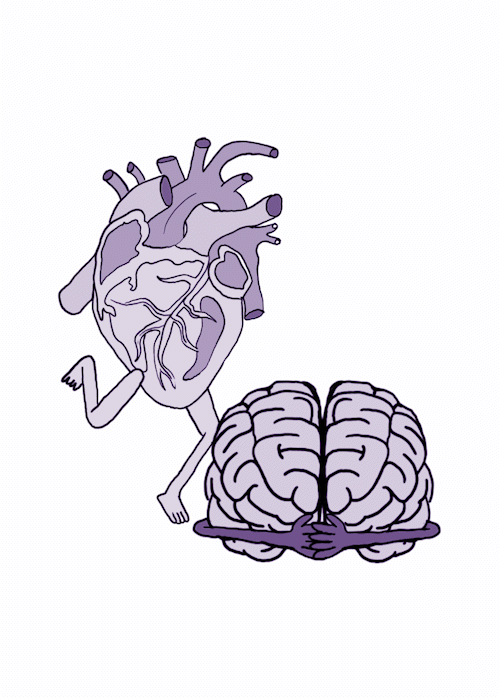The Why 79: Why does our stomach sink when someone tells us they ‘want to talk’?
Question from Sam, Belgrave
Hey Sam, I feel queasy just reading your question. We’ve all been there. One minute you’re minding your own business, reading your favourite Friday newsletter on the morning commute. The next minute your mood — and your day — are essentially torpedoed by an innocent little notification containing those four dreaded words: ‘We need to talk’.
Whether it’s from your boss, your boyfriend, your best buddy or your barista, the moments that follow this cryptic little landmine are often spent running through a quick mental checklist of every horrible thing that you maybe, possibly, probably could have done.
But it’s not our first rodeo! We’ve been here before and we know that nine out of ten times the ‘talk’ will be a simple work-related question or a hilarious story that needs to be shared in person. Why do we do it to ourselves?
Affect Heuristic
The Affect Heuristic refers to our tendency to make quick decisions based on our emotions rather than relying on concrete information or facts.
The Affect Heuristic came into focus in the 1980’s when social psychologist Robert B. Zajonc began his research into how emotions impact decision making. In his iconic paper (generously titled) “Feeling and thinking: Preferences Need No Inferences”, Zajonc proposes that we don’t simply see things for what they are, but for the emotions we instantly attach to them. For example, we never just see ‘a house’. Rather, we see something we immediately perceive as ‘a cosy house’ or ‘a pretentious house’.
It makes sense when we consider that to stay alive, our pioneering cavemen ancestors needed to rely on past experience and emotions (fear, hunger, anticipation) to make quick decisions. There was simply no time to ponder the statistical likelihood of whether it was a bear or a bird rustling ominously in the bushes. In other words, jumping to conclusions saved our life!
So it’s no wonder, Sam, that we go into self-defence mode by conjuring all sorts of worst-case scenarios when we don’t know. Consider it your brain’s weird way of keeping you safe in a sticky situation.
For brands, there are two ways to think about the Affect Heuristic. The first is using it to your advantage by (responsibly) creating fear or anxiety, for example “Guess which item on your wishlist just sold out!”. The second is to ensure that you’re not being negatively impacted by the Affect Heuristic by leaving too much room for ambiguity. Sometimes, neutral or even positive messaging can go downhill fast when it lacks the right tone or details. Imagine receiving your regular phone bill with a message that simply reads “Please see attached important information about your account”. Gulp! Oh, and please, never ever ever send an unexpected calendar invite that just says ‘catch up’.
Behaviourally Yours,
PS If you missed the last edition, you can still check why challenger brands need cheat codes here.
Bad Decisions Podcast
Learn more about Behavioural Science with the Bad Decisions podcast here.
Got a question?
Is there something you’ve always wondered about?
Send it through to AskDan@hardhat.com.au
Want more?
Check out the Cheat Codes for Challenger Brands website with more info on each Cheat Code here.


